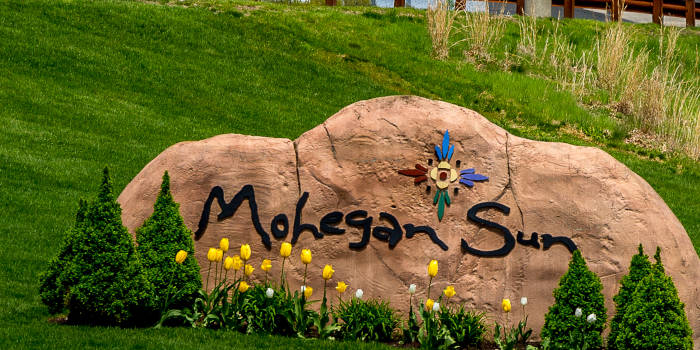- Casino
- By State
- Alabama
- Alaska
- Arizona
- Arkansas
- California
- Colorado
- Connecticut
- Delaware
- Georgia
- Florida
- Hawaii
- Idaho
- Illinois
- Indiana
- Iowa
- Kansas
- Kentucky
- Louisiana
- Maine
- Massachusetts
- Maryland
- Michigan
- Minnesota
- Mississippi
- Missouri
- Montana
- Nebraska
- Nevada
- New Hampshire
- New Jersey
- New Mexico
- New York
- North Carolina
- North Dakota
- Ohio
- Oklahoma
- Oregon
- Pennsylvania
- Rhode Island
- South Carolina
- South Dakota
- Tennessee
- Texas
- Utah
- Vermont
- Virginia
- Washington
- West Virginia
- Wisconsin
- Wyoming
- By State
- Slots
- Poker
- Sports
- Esports
Kentucky Organizations Call Tax on Historical Horse Racing Inadequate

A coalition of Kentucky organizations has claimed that the tax on historical horse racing is too low as the state plans to push harder for sports betting in coming months.
Historical Horse Racing Tax Needs Actualization
Kentucky may soon debate whether to raise tax on historical horse racing, as a new coalition of 17 groups has called for the levy to be adjusted. The Kentucky Education Association has joined numerous other organizations, including the Kentucky Mental Health Coalition and Kentucky Coalition Against Domestic Violence in calling the current tax “deeply inadequate.”
The current levy ought to be raised, the coalition argued in a statement, as horse racing could prove an even stronger revenue source for the state’s depleted coffers. More importantly, the coalition believes that horse racing has been underpaying tax, and given the pandemic that struck the state, an actualization is necessary.
This comes at a time when Kentucky is attempting to pass sports betting law and liberalize the betting industry, something that is important and should be acted on appropriately, the group said. Essentially, the coalition argued that should sport betting pass, but tax is not raised, it would lead to unfairly low payments to various state initiatives, including schools, health care, infrastructure, and more.
Expanding gambling across the commonwealth without making sure there is an actual benefit to the state, said the group further, was wrong. Meanwhile, Kentucky is struggling with another issue, the legal status of gambling terminals that allow to place bets on horse races.
Last September, the Kentucky Supreme Court decided that historical horse racing is not in fact pari-mutuel wagering, and as such, it is not legal. Machines would have to go, the decision basically states. For any type of pari-mutuel betting to take place, the state would need to introduce a bill with Sen. John Schickel already on the job.
Legalizing Sports Betting: Benefits to the State
Yet, he is facing some opposition as gambling opponents claim that any attempt to legalize gambling in Kentucky would have to pass a constitutional amendment, a lengthy and expensive process for the most part, because of the funding that goes into raising awareness for the issue.
Given the gaping state deficit, leaving the issue with state legislators, who are equally split, would be best and guarantee a fair outcome. Kentucky has been posting a solid handle on just historical horse racing alone, with last year’s results reaching $2.2 billion, up 11% despite the pandemic.
The main opposition against historical horse racing’s current legal framework is the tax. The tax collected in 2020 was $33.8 million, but this fails to account that historical horse racing only ought to pay tax on its revenue, not handle, meaning that $33.8 million is suddenly not that low.
However, one thing that could be amended is the way money from historical horse racing is distributed. Much of the money circles back to various programs that support the industry instead of helping state initiatives such as education and health care.
So, instead of the money going to the General Fund, it’s usually left with various other initiatives that favor the horse racing industry, and that is a good thing for the industry and state. However, more needs to be done to help the state.
The group argued that should Kentucky follow in the footsteps of Ohio, Indiana and West Virginia, where slot machines and other gambling products are taxed, the state’s legislature must ensure that it is getting fair payment.
Mike made his mark on the industry at a young age, consulting for companies that would later become regulators. As one of the lead editor of Gambling News, he dedicates his weekdays to this project, aiming to educate the masses on the latest developments in the gambling circuit. His expertise and passion for the industry make him an invaluable asset to our team.
Previous Article

Sports
February 2, 2021
Sega Splits Resorts and Video Gaming Divisions in Two Subsidiaries

More Articles






Casino
July 11, 2025
IGT Reveals Multiple Jackpots Throughout June

Sports
July 11, 2025
DraftKings to Give Back Over $3M to Connecticut Users

Casino
July 11, 2025
Caesars Introduces Digital Wallet in Nevada

Sports
July 10, 2025
NJ Bans Sportsbook Deals With Public Colleges

Casino
July 10, 2025
Mohegan Sun Guest Wins $2M Gambling in Spanish 21











1 Comment
I go to Red Mile regularly, and enjoy putting a little money in the tax fund. Why not go all the way and legalize gaming of all types. I know lots of peeople that go out of state and. contribute to their tax fund. People that are against it are not going to casinos anyway.